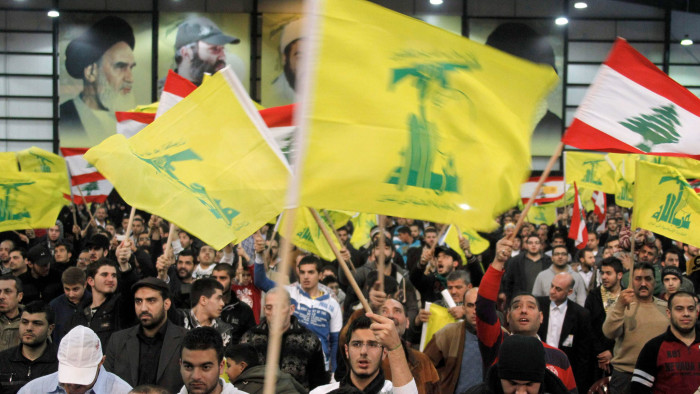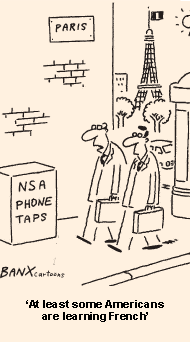Shutdown is just a part of Lebanese life

Roula Khalaf, Editor of the FT, selects her favourite stories in this weekly newsletter.
The brief shuttering of government in Washington this month excited much sardonic merriment in Beirut. Some of it mocked a stereotypically imagined American schoolmarm who at home cannot live up to the strait-laced strictures she preaches abroad, but mostly along more profane lines depicting US politicians as a bunch of sissies. Shutdown? Meltdown? What are these Americans fussing about?
Lebanon has, after all, been without a government since March – and few of its citizens would be able to spot the difference anyway.
Hizbollah, the Shia paramilitary movement and Lebanon’s most powerful political actor, brought down the last government, even though it was a coalition over which the Iran-backed Party of God and its allies held a veto. Parliament limps along in a legally opaque penumbra, after failing to agree on a new election law that would safeguard its members’ jobs. Instead, MPs have awarded themselves extensions to their terms, because the constitutional tribunal empowered to adjudicate on proroguing the legislature was kneecapped by the withdrawal of Hizbollah trusties.
Parliament’s episodic attempts to reconvene, rather like the new prime minister-designate’s efforts to form a government, are paralysed by a cat’s cradle of mutual vetoes and boycotts by leaders of Lebanon’s panoply of religious sects and feudalised factions. This leaves politicians in an optimum position – on full pay and perks while wholly unaccountable – and the country in a wasteland of inquorate institutions. The Tea Party really should consult Hizbollah.

The debate in Lebanon is not about the size of the state or the national debt. Listen to the incessant pronouncements of its politicians and you might imagine it was about the arcana of constitutional law – until you notice the numbers of their bodyguards, and that many of them live for most practical purposes in hiding. Saad Hariri, leader of the Sunni-dominated opposition – and son and political heir of Rafiq Hariri, the former premier assassinated in 2005 – operates from the safety of Paris. Hassan Nasrallah, the Hizbollah chief, runs things from a stronghold in south Beirut where the Party of God’s writ is absolute, and almost never appears in public.
Lebanon is divided between an enfeebled Hariri-led Sunni coalition backed by Saudi Arabia, and a Hizbollah-led Shia bloc backed by Iran and allied to Syria, with Christian factions led by superannuated warlords split between them. One former minister says the glue holding together the state is the prospect of a bonanza from recently discovered oil and gas riches in the east Mediterranean. But Lebanon is part of a wider struggle for power: the Sunni-Shia contest within Islam whose current frontline is the spreading civil war in Syria.
Hizbollah this spring committed its seasoned guerrillas to the survival of Bashar al-Assad’s embattled dictatorship in Damascus, tying the future of Lebanon – still nursing the scars of its own sectarian civil war of 1975-90 – to the outcome in Syria. Open confrontation on Lebanese soil has so far been limited to a few reciprocal car-bomb attacks. But the tension is palpable.
By day, the building boom started by the reconstruction of postwar Beirut clatters on. By night, the malls and cinemas, streets and restaurants of mainly Muslim west Beirut are eerily empty. Most public buildings are shielded by blast barriers and razor-wire. Tourism, mostly from the Gulf or Lebanese diaspora, virtually collapsed this summer. The tourism ministry seized on a recent Condé Nast Traveller poll placing Beirut in the top 20 world destinations. But one high-end restaurateur says his business is down 30 per cent, and falling. The Lebanese are a resilient lot, with an unhealthily high tolerance of chaos. But today’s crisis is different.
In the recent past, Hizbollah had Syria as a secure rearguard that allowed it to keep Lebanon on the boil, as a live front in the contest with Israel, notably in the wars of 1996 and 2006. Now, with Syria in flames, Hizbollah and its Iranian masters need to keep Lebanon quiet. The party has therefore tightened its already fast grip on Lebanon’s security organs – one reason it let the government go in March. It and its friends pack institutions, keep them empty or ensure they cannot work. The result is not so much state failure as the absence of the state, pushing Lebanese citizens back into the embrace of sect. Even without Syria to remind them, they have reason to know where that leads.
Comments